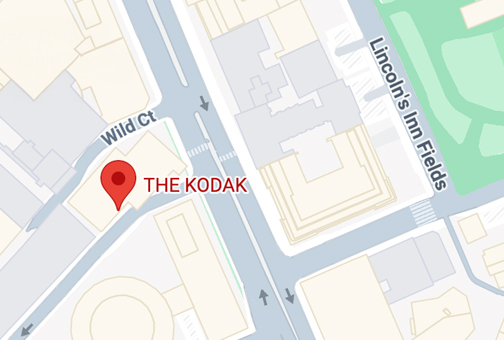
As part of the Strategic Intelligence team at Publicis Media, Scott Thompson supports the strategy and planning teams across Starcom, Zenith and Spark Foundry with understanding the data they have access to, how they can use it to get to underlying human truths and then develop actionable insights that help inform strategic decisions. “To put it another way,” he says, “my role’s all about research and insights.”
Q. The sheer number of data suppliers out there is mind-boggling, so why did Publicis chose UKOM-endorsed Ipsos iris, and why now?
Several reasons!
The two things that we need to be able to understand are the audiences our clients are trying to reach with their messages, and the media they are using.
Ipsos iris gives us the best view available of online audiences in the UK– far richer than the basic demographics that we’ve become used to, and an understanding of how they are using their phones, computers and tablets in combination.
While it is important to have industry-accredited data, in terms of Publicis’ decision making the UKOM approval is really the icing on the cake. Although I think it’s just as important to recognise that without the UKOM approval on Ipsos’ methodology proposal, the iris data probably wouldn’t exist in the first place; the UK has moved from being led by what data is available on the market to what the industry actually wants and needs from online audience data. That’s a really exciting development.
Q. Everyone has an opinion on digital audience measurement and what should be in the mix. What's the single most important factor for you?
That’s a big question!
First, I think audience measurement needs to be audience-centric – we’re flooded with ‘digital data’, but most of it is coming from devices without any real understanding of the people who are using them. That kind of data certainly has its place, but understanding audiences isn’t what it’s best suited for.
We also need to be able to understand how to interpret the data, so that we can get to the underlying truths behind it and uncover the actionable insights that can inform the decisions that our teams and our clients need to make. Unless the measurement process is open and transparent, all we can do is take the data at face value – so the single most important factor is transparency.
Q. There's more depth and flexibility to the Ipsos iris data than was available via UKOM endorsed data in the past. Are you using these new features yet and if so have they improved your work for clients?
Across Publicis we are making use of these new features and they are proving invaluable for our own understanding of behaviours and informing client responses.
Just recently we used Ipsos iris to investigate if there had been an uplift in traffic to news websites since the Ukraine conflict began, and if so, who was engaging and which publishers were they engaging with.
In an era when clients want faster reporting and quicker answers, having a data set that is near real-time enables us to be confident that we are using current behaviour trends to inform our responses.
Ethnicity is increasingly valuable as all advertisers are seeking to be inclusive in their communications.
Q. At UKOM we've spent time explaining that comparisons with previous data are unhelpful, that long-term past trend data isn't the key benefit of Ipsos iris. Are you comfortable that the arrival of Ipsos iris in 2021 marked year zero, a reboot?
The world in 2021 was so different to 2019 – we’re living in a world with far more remote working, more ecommerce, and more of our lives being lived through connected devices. I can’t think of any media research fieldwork that has come out of the other side of the pandemic looking the same as it did going in (if it isn’t too early to talk about the pandemic in the past tense.)
You could certainly pick an easier year than 2020 to build out a whole new consumer panel – but I don’t think you could actually pick a better time for a reboot.
Q. Media owner tagging boosts the depth and breadth of data available in Ipsos iris. As an agency with close links to publishers and platforms, how would you persuade even more of them to make tagging a top and ongoing priority?
The more agencies and advertisers use the data, the more important the quality of the data becomes – so the fact that more agencies are getting on board should be something they take notice of. I understand that tagging up websites is a complicated job, and more so for bigger and global publishers and platforms.
But I think it’s a simple question; do you want advertisers to buy your inventory through programmatic channels and third-party data partners, where price doesn’t necessarily reflect the quality of the inventory? If so, then don’t worry about Ipsos iris. But if you want planners who understand the value of context, quality content to be coming to you, then helping Ipsos iris understand your audience is going to help those planners drive spend to your business.
Q. Looking to the future, and imagining no constraints, how would you like to see online audience measurement evolve in the UK?
When UKOM launched, “online” simply meant computers. Today, in my household, we have smartphones, smart speakers, smart TVs, games consoles, a VR headset … all delivering some sort of online media on a weekly, if not daily, basis. In five or ten years I don’t want to be telling the same stories about VR and the metaverse that I’ve been telling about ‘video on TV’ measurement for the last few years.
Q. Is it important to have an audience measurement solution that is tailored to the UK's unique situation?
In principle, I don’t think it’s a fundamental. What I mean by that is if we had better data coming from something developed elsewhere, then we should use it.
In practice though, it means the market has a measurement solution that isn’t going to be led astray when developments in other markets aren’t relevant in the UK, or held back when developments happen faster in the UK than other markets – and that can only be a good thing.
Q. With a single source multi-device panel, Ipsos iris is more interoperable with other data sets, including PAMCo and IPA Touchpoints. Would you consider integrating iris with your own proprietary systems?
Certainly! We’re already integrating Ipsos iris data with our cross-screen planning and optimisation systems, and as the system and data continues to develop, we’ll be continuously looking for new opportunities to create more value.
Q. UKOM data from Ipsos iris feeds PAMCo with the online element of audience measurement for published media. Is this combined data set valuable to your agency?
The fact that online and print measurement are working together – remember, the PAMCo establishment survey is also feeding into Ipsos iris data – can only be a good thing. I don’t think it makes sense to have a ‘print team’ having one conversation with a media owner, looking at one set of audience data, while a ‘digital team’ has another conversation about a different set of audience data. I welcome anything that moves us away from pre-digital channel thinking and towards a view of audiences across all channels.
Q. As a reward for answering these dastardly questions, we're moving you to zero online presence for a month. What do you switch back on first and why?
So every time we need to pay bills, book kids activities, deal with their schools, organise events with friends, book tickets, shop, order takeaways, arrange holidays … you’re saying that for a whole month my wife would have to take care of everything?
Can you make it any longer?










